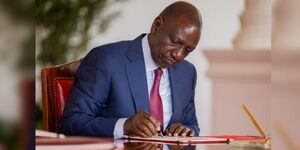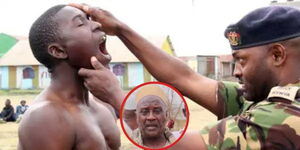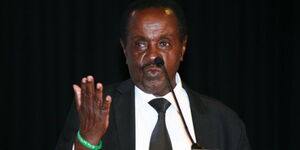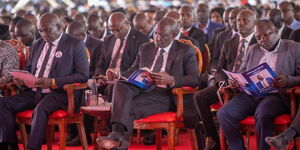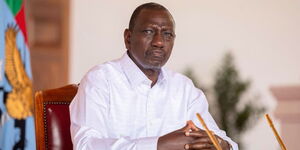Top public officials can be served court documents through their official emails or their offices under special circumstances, a court has ruled.
The landmark ruling by the High Court was in response to an application by former Inspector General of Police Japhet Koome, who is accused of being responsible for the conduct of police officers during the infamous Gen-Z protests of June 2025.
Koome, in his application, wanted an earlier judgment which held him accountable for the brutal conduct of police set aside, arguing he had not personally been served the court documents.
However, in her ruling on Monday, May 26, Justice Roselyne Aburili tossed out Koome's application, refusing to entertain Koome's technicality allegations in the case.
Justice Aburili affirmed that public officers of high rank can be served court documents electronically or through offices, especially when there are security concerns of the possibility of intimidation from the officer.
“Effecting service of court documents upon the Inspector General of Police in Kenya involves certain procedural sensitivities and security considerations,” Judge Aburili said.
“To expect that a process server would track down an Inspector General of Police to hand over court documents personally may not be practicable.”
The judge asserted that it was quite reasonable for the servers of the court documents to do so using other means for fear of intimidation.
The court also deemed it perfectly reasonable for the servers to be concerned about their welfare, especially when approaching officers at police stations in politically charged contexts such as strikes and demonstrations.
In an earlier ruling, Justice Ngaah Jairus found that Koome could not escape responsibility as the head of police after he was dragged to court following the use of excessive force by officers under his command.
In a separate application, a human rights group moved to court to file a petition to subject Koome over unlawful conduct where he ordered police officers in April last year to deal with striking doctors firmly and decisively.'
Upon the issuance of the order, KMPDU Secretary General Davji Atelah was seriously injured while leading industrial protests by the doctors at that time.


